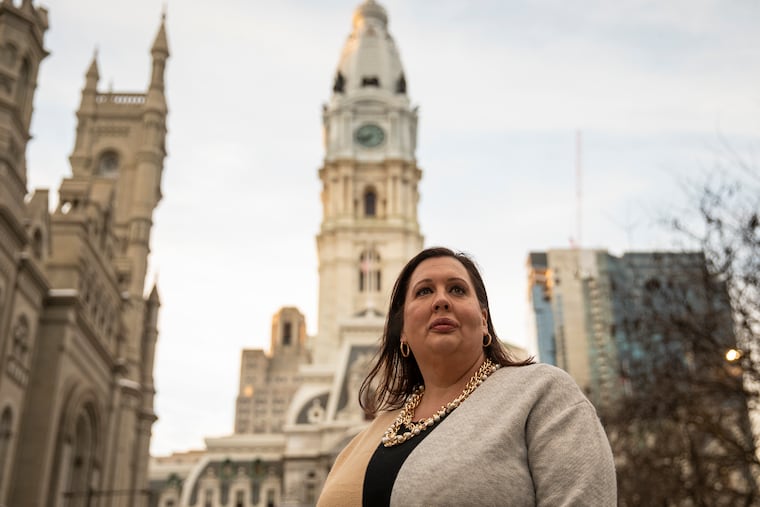Could this be the year that City Council gets its first openly trans member?
The longtime LGBT activist doesn’t want to be known as the first trans candidate campaigning for an at-large Council seat but rather a candidate who happens to be trans.

Deja Lynn Alvarez wants to run for City Council at-large, but she doesn’t want voters to think of her as the trans candidate.
Alvarez would like to be viewed as a candidate who happens to be transgender. That’s a fine but important distinction, and one she hopes voters will accept in time for the May 21 Democratic primary.
Even so, there’s no getting around the novelty of having an openly trans candidate jump into what could be a crowded race.
Nationwide, trans candidates have made considerable gains, no doubt inspired by the success of Virginia’s Danica Roem, who in 2017 upset the Republican incumbent and became the first openly trans person to be seated in the Virginia statehouse. Also that year, Pennsylvania elected its first openly trans candidate when Tyler Titus of Erie nabbed a spot on his school board.
The times are indeed a-changing. But could this really be a year in which Philly voters embrace an openly trans politician?
“It does feel like something is happening,” Alvarez said when I stopped by the offices of the political consulting firm of Crews, Moseley & Associates on Friday to meet her. “People are tired of the same-old same-old.”
Alvarez is anything but that. These days, the longtime LGBT activist works as a system navigator with Club 1509, an HIV prevention program funded by Philadelphia’s department of health, and is a member of the Mayor’s Commission on LGBT Affairs.
“Everybody calls me ‘Auntie.’ I guess just 'cause I remind them of that old auntie who has that personality that takes care of everybody,” said Alvarez, who is also an organizer for the Women’s March on Philadelphia, scheduled for Saturday.
The first time I saw the 40-something Latina, she was in her element at a meeting about racial discrimination in the Gayborhood. I don’t recall details of her testimony that day but I do remember that the respect and love for her in that packed room was palpable.
“Deja is somebody that everyone in the city can turn to when they really need help,” explained Helen L. “Nellie” Fitzpatrick, the city’s former director of LGBT affairs. “I’ve never seen her turn anybody away.”
She would be an asset to Council, because she would bring an outsider’s perspective — something that could be useful when grappling with the opioid crisis and homelessness.
Alvarez was born male in Chicago — she asked me not to reveal what year — and moved with her family to Delaware at a young age. Early on, Alvarez sensed she was different from other boys, and was bullied for her mannerisms and flamboyant way of dressing.
“I started hanging with an older crowd. I started doing drugs. I started drinking, running away from home, doing all these things. Then I met a guy, and he brought me up to Philadelphia for my first time,” she recalled. “I saw people like me. I knew that’s who I was. I saw trans women walking around the street. I didn’t know why they were walking around the street, but here they all were gathered. I’d never seen anybody else like me.”
Unable to find a steady job, Alvarez became a sex worker and was frequently harassed by police merely for walking on a sidewalk. A pivotal moment happened late one night in the early 2000s, when she and a friend were hassled by an officer after leaving a bar. It had happened before, but this time, Alvarez fought back. She complained, loudly, and Philadelphia police later agreed to conduct mandatory sensitivity training for officers in the Gayborhood.
“That was kind of where it began," Alvarez said of her activism.
She began passing out condoms for the Mazzoni Center, which provides health-care services to the city’s LGBTQ population. Alvarez founded the center’s Trans Wellness Program.
Always, though, she did what she’s most known for — serving homeless LGBTQ youth. For a time, she was executive director of the Home for Hope, an LGBT shelter. A year ago, she opened her Port Richmond home to a young father in need of a suitable place to bring his daughter during visitations.
So much good work.
It’s the type of advocacy Alvarez hopes to continue working inside of City Hall, instead of standing outside with a bullhorn.